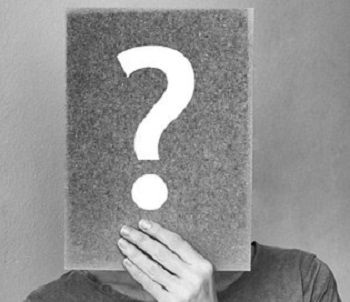Does Your Personality Change If You Become Disabled?
by Beth
 I was out with a friend last week who takes a healthy interest in exactly what makes people tick. She didn’t know me earlier in life, when I could see, and said she couldn’t help but wonder. “Do you think your personality changed when you went blind?”
I was out with a friend last week who takes a healthy interest in exactly what makes people tick. She didn’t know me earlier in life, when I could see, and said she couldn’t help but wonder. “Do you think your personality changed when you went blind?”
I didn’t know what to say. I didn’t find the question offensive, I just didn’t have an answer. “You should ask Mike!” I laughed, joking that he’d probably know better than I would—Mike and I celebrate our 35th wedding anniversary this year, and I lost my sight a year after we got married.
The question has been on my mind off and on since then. What does personality mean, exactly? Does “funny” count as a personality? Does “fearful”?
Years ago a reporter at a lighthearted event I spoke at discovered that a friend in the audience had known me most of my life. “Was Beth funny when she could see?” he asked her. “Or did she get a sense of humor after she lost her sight?” The sister who is closest to me in age marvels at my ability to get around on my own in Chicago. “You were scared of everything when we were little, “ she says, describing a time she tried teaching me to ice skate backwards. “You wouldn’t even try, and now look at you.”
My friend told the reporter I was always funny in high school. That means my personality didn’t change. My sister says I’m fearless now. So maybe my personality did change.
Happy, sad, impatient, shy, fearful, curious, helpful. What characteristics describe your personality? Maybe it’s in the eye of the beholder.
And then there’s that study comparing lottery winners with accident victims. Shortly after the Illinois State Lottery started in the 70s, psychologists from Northwestern University published a study called “Lottery Winners and Accident Victims: Is Happiness Relative?”
The researchers asked 22 winners to rate their happiness months after the initial elation of winning the big bucks. In addition, they asked the winners how much pleasure they were taking in mundane activities like reading a magazine or meeting friends for coffee. Then they interviewed people who lived in the same neighborhoods as the winners but hadn’t won the lottery. The results showed that months after the winners were announced, the non-winners were just about as happy as the lottery winners. The so-called losers were finding much more pleasure in everyday activities than the winners were.
The researchers also interviewed people who were paralyzed in accidents that same lottery year. Their research found that after initial sadness, the people who were paralyzed rated their pleasure in everyday activities slightly higher than that of the lottery winners. Their life satisfaction was nearly the same.
That study makes a lot of sense to me.
It’s Wednesday. I listened to NPR while I finished the cup of coffee Mike made for me this morning. Once I was done, I flipped on my talking computer, sent out a few messages, helped a writer in one of the memoir-writing classes I teach send a manuscript out to a potential publisher.
That done, I collected myself, put on a raincoat, buckled my Seeing Eye dog Whitney into her harness, and we headed out to the bank. Two of my sisters are visiting this weekend, which means a lot of eating out, hearing live music, catching the train to the suburbs to visit family there, checking out some museums – I’ll need some cash!
It stopped raining while we were out, so Whitney and I took the long way home, listened for birds, and smelled the lilacs.
Back here in the apartment, I’ve been spending the past couple hours on my job for Easterseals, including writing this post! Then time to shower, dress, check to make sure everything I need is in my bag, and head downtown to lead my memoir-writing class.
I’ll feed Whitney when we get back, then maybe listen to a book while I get ready for the happy conclusion to the day: we’re heading to the Gene Siskel Film Center to see Amazing Grace, a documentary about Aretha Franklin.
So did my personality change when I became disabled? I will say this: the way I move through space has changed, and the way I take things in has changed – I use my ears, my sense of smell and my sense of touch instead of my eyes. Does “active” count as a personality? I was active when I was young, and I’m still active now. As Aretha would say, “Rock Steady!”






